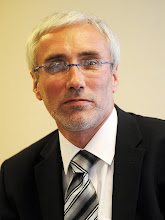This time it's a 59-year-old woman from Islay, in Argyll - the sixth person to die in Scotland. No other details are released and yet we are reliably informed by Scottish health secretary Nicola Sturgeon that "As we have seen in previous cases, this patient was suffering from underlying health conditions and her death should not cause alarm among the general population".
But what are these UHPs? Mild asthma (like what I've got), epilepsy (as at least one report suggests was a contributory cause in a swine flu death) or is it just a phrase churned out each time to reassure the public.
In my quest to pin down when to panic and when not to, I have found this advice on the World Health Organisation website. It says medical attention should be sought when any of the following danger signs appear in someone with confirmed or suspected H1N1 infection:
- Shortness of breath, either during physical activity or while resting
- Difficulty breathing
- Turning blue
- Bloody or coloured sputum
- Chest pain
- Altered mental state, including drowsiness and confusion
- High fever that persists beyond three days
- Low blood pressure
- In children, warning signs include fast or laboured breathing, lack of alertness, difficulty in waking up, and little or no desire to play.

No comments:
Post a Comment